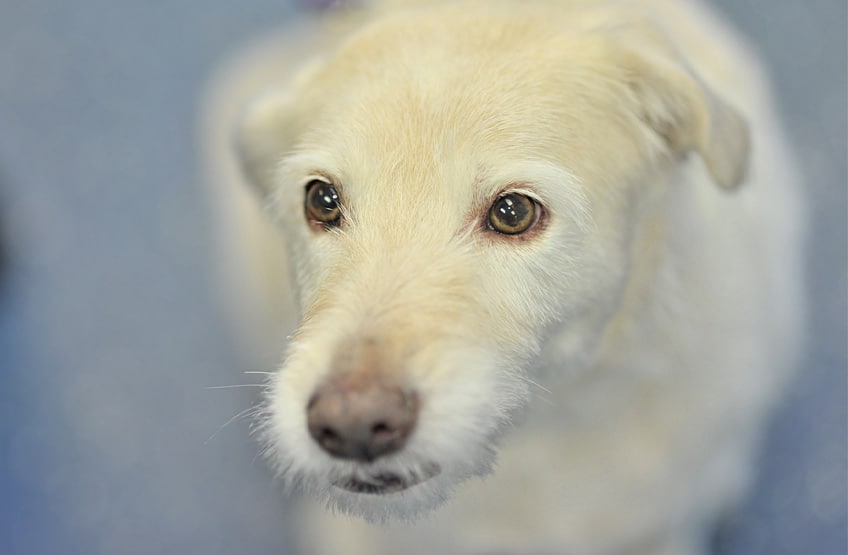The lifestyle changes should be a no-brainer. Your dog will want to take life easier, so they’ll set the pace themselves when waking and running.
Taking Care of Your Senior Dog
But less obvious will be the changes that are happening on the inside. Their digestion systems and immune systems may need a bit of extra support. And because you’re in control of their diet, it’s up to you to help them out. Find out all you need to know about feeding senior dogs and providing a nutritious diet for the older dog in your life!
Get the Right Dog Food
All the major brands of dog food offer a specialist senior versions of their most popular lines. Specifically formulated to suit your dog’s changing eating habits and nutritional requirements, “senior” dog food is generally packed with high quality protein, and is designed to be easy to chew and digest.
Senior dog food contains a careful balance of the nutrients older dogs need to stay happy and healthy, with a good mix of antioxidants and fatty acids to support their joints and immune systems. Finally, because senior dogs are less active and have slower metabolisms, their food generally has a lower calorie content.
Take Things Slowly
Introduce your dog to the senior dog food gradually. A sudden chance might cause some digestive issues, so begin by adding small portions of senior food to your dog’s bowl, aiming to make a complete shift over a period of 7-10 days.
How Often Should I Feed My Senior Dog?
Most people feed their dogs twice a day. But instead of facing a couple of fully-loaded bowls a couple of times a day, senior dogs tend to prefer smaller portions, served more frequently throughout the day. Feed your senior dog in a quiet place, somewhere they can eat in peace without any surprises or distractions.
If you have more than one dog, feed them at the same time, but in different places. Otherwise, one dog might bully or otherwise intimidate the other, and at this age, the last thing your dog needs is stress. The older your dog gets, the more likely they are to suffer from such conditions as arthritis, so you should make things as easy as possible for them.
For example, consider feeding them out of a slightly raised bowl to save them from having to strain themselves when reaching down.
Older Dogs & Obesity
Because they have a slower metabolism and a slower pace of life, it’s not unusual for older dogs to put on a bit of weight. While a bit of weight gain is to be expected, a lot of weight gain can be a problem. Canine obesity can lead to a wealth of serious health issues, especially as your dog approaches later life. If you’re worried about your dog’s weight, call your vet. They’ll be able to recommend a specialist senior diet to suit your dog’s changing lifestyle and metabolism.



Our Services